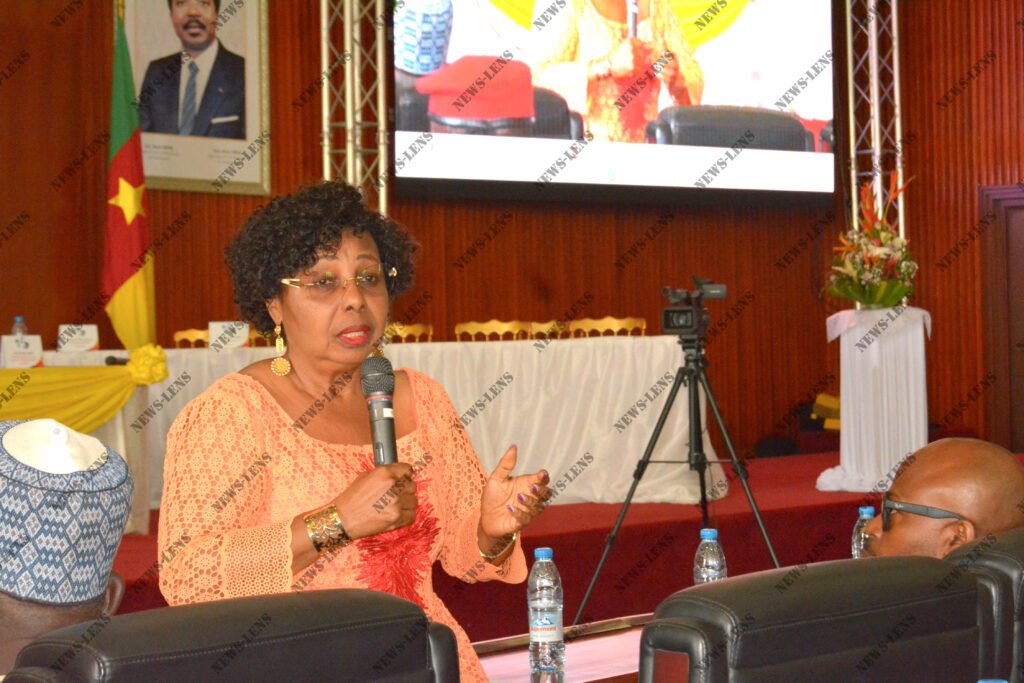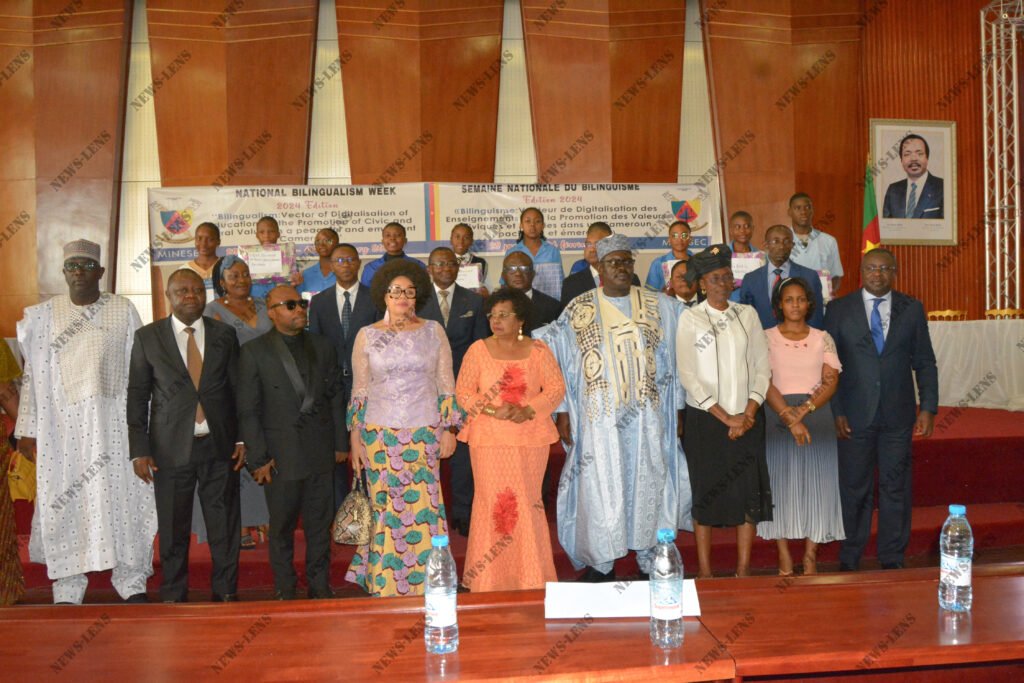By Etienne Mainimo Mengnjo
The Minister of Secondary Education, Prof. Pauline Nalova Lyonga, has defied traditional perceptions of a “second language” in Cameroon by emphasizing that there is no such thing as a second language, but rather just another language.

She made this statement on February 6 in Yaounde during the closing ceremony of the 19th edition of the National Bilingualism Week. Minister Nalova Lyonga, accompanied by Valerie Asheri Kilo, Secretary of State to the Ministry of Basic Education and other government dignitaries, chaired the closing ceremony.
The 2024 edition of the National Bilingualism Week, celebrated from January 29 to February 6, was celebrated under the theme “Bilingualism: Vector of Digitalisation of Education for the Promotion of Civic and Moral Values in a Peaceful and Emergent Cameroon.”
The Minister reiterated, “…Also remember that you have two languages which are equal. You can’t afford to make the other side of Cameroon feel inferior. There is no second language, but what I know is that they are both first languages. There is the first language on either side of the country. There is no tolerated second language… We have to be in Cameroon. Cameroon is Cameroon. Whoever is saying anything, let them say whatever they have to say.”

Minister Nalova encouraged teachers and stakeholders to encourage their students to have better pronunciation so that everyone can speak real French and English. She insisted that these students need models.
“We must be teaching the specialists how to teach those who want to be special. We need to move up. Tell me that French or English is the other language and not the second,” she stated.
Minister Nalova added, “What people need to know is that digitalization is a tool. Be it in the monolingual or bilingual situation, just use digital tools to get to where you want to go. Knowing what possibilities Cameroon has, is important. Cameroon is open to the world. We have to begin to encourage parents to know the options that exist in Cameroon and know what is good for their children.”
In the meantime, the MINESEC boss called on teachers to shun lies and remain dedicated to their profession. She urged teachers to hold the teaching profession in high regard stressing the importance of producing admirable children.

“I don’t know about a teacher who lies. Teachers don’t lie. If you don’t want to teach, don’t teach. You are free, don’t teach. If you say that you are receiving peters, that peters, some other person wants it. As we are separating here, I hope that you are going back to do your jobs as teachers. Teachers remain teachers.”
“A teacher is a teacher everywhere. A teacher cannot lie, but if you want to lie, I will kick you out because you are spoiling the profession. Let us hold our profession up. Let us keep producing the children that we have seen here today. The world will admire us more than they are doing today,” she stated.
During the closing ceremony, children demonstrated their knowledge of bilingualism through poems, sketches, and dances. Teachers reflected on the four pillars of bilingualism, while students held a debate on the theme of the 2024 edition.

Unlike previous years, this edition of the National Bilingualism Week lasted nine days, including the official launch, launching ceremonies in other towns, activities in schools across Cameroon, and an open-door day and exhibitions at the Ministry of Secondary Education in Yaounde.
Cameroon has approximately 145 special Bilingualism Education Program pilot schools throughout the country. According to statistics from MINESEC, these schools have around 36,267 students and 1,142 teachers. The Northwest Region has six schools, while the Southwest Region has a total of 11 schools. The Center Region has the highest number with 25 schools, followed by the Littoral Region with 22.